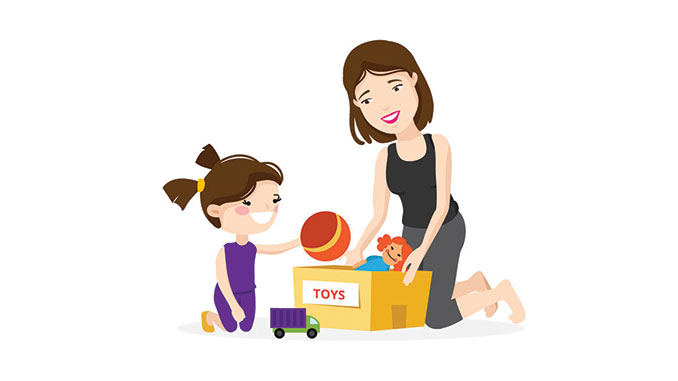
Easy ways to embrace less stuff.
Published: March 24, 2020
By: Kathryn Streeter
As an urban mama, I raised my kids by necessity in small places. One of the greatest unintended side effects, I discovered, is that less space served as an automatic check on rash purchases. More profoundly, it forced me to get creative.
There are many good reasons to live a simple, uncluttered life, but getting kids to agree to less “stuff” can be challenging.
How can you foster discipline and good habits in kids so they will cooperate with the effort to cut back?
Having a plan can help you and your kids adopt a happier-with-less mindset.
Our giving game, aka how to encourage recycling. Each month, I combed through the house, garbage bag in tow, sorting out what we didn’t need anymore to take to our local thrift store. Goal: Sell the recycling concept by passing our unused stuff to others. “It’s no longer useful to us, but I guarantee, it will be for someone else,” I said. Today’s kids are socially conscious creatures, after all.
Something leaves when something new enters the house. When a new article of clothing appeared, another piece of clothing had to leave. I allowed drawers and closet space to determine how much was enough. When toys bulged and didn’t fit, my thought wasn’t to shuffle things down to the basement or to the attic. We had neither. Truth is, it’s liberating to adopt the habit of cycling things out when new things come in. Pass along this happy vibe to your kids through your tone and word choice to encourage kids’ cheerful cooperation.
Talk openly with your kids in new, honest ways about possessions. In teaching our kids good stewardship and enjoyment of what they do possess, we should engage them in thoughtful conversation about taking care of what we own. That once-loved watch buried in a drawer? Get the battery changed or part with it. What we care about, we’ll use and maintain in mint condition, like my sneaker-head teen son does today with his prize collection, which is neatly displayed on his closet shelf.
Be sure to walk the talk. Taking steps to repair, donate or sell things around the house that aren’t being used will model good stewardship to our kids.
Identify areas of excess. Keeping track of possessions is tough. Have you ever thought, “I know I have C batteries around here somewhere,” but since you can’t track them down, you have to go out and buy them — again? The same goes for our kids. I’m not the only one who has been cornered by a distraught child missing a part of their school uniform or earbuds. At the end of the day, when things get lost in our homes, it’s easy to blame it on haphazard organization. But it could be a picture of excess, plain and simple.
Cutting back will help us enjoy the stuff we really need and truly love. Best of all, less distracting clutter in our homes opens up more mental space, enabling us to better enjoy those busy little people in our midst, who are worth far more than all the stuff in the world.
